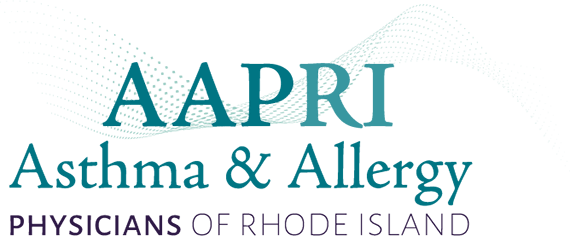These days we often hear terms like “antioxidants,” “omega-3s,” and “probiotics” when talking about health and nutrition. Making sure you’re meeting all of your nutritional needs can feel a bit overwhelming. But it’s important, because lacking certain nutrients can suppress your immune system function, leaving you more vulnerable to illness, fatigue, poor sleep, stress, and even certain chronic conditions such as asthma and allergies. Here’s an easy-to-use glossary to help you understand the terminology when it comes to nutritional supplements.

But first, read this!
Consult your doctor before you begin taking any vitamins or nutritional supplements. Whether you come to see us at one of our three AAPRI office locations or at the AAPRI Center for Functional Medicine, we listen to your health concerns and perform testing as appropriate to get a diagnosis and pinpoint any nutritional deficiencies. We can then prescribe the right dietary supplements to help support your immune system and improve your overall health. Schedule a consultation today!

“We take the guesswork out of knowing which vitamins and dietary supplements to take.”
—Amanda Matteson, PA-C, Functional Medicine Practitioner
Nutritional Supplement Glossary
Amino Acids – These are building blocks that make up proteins. Humans need 21 different amino acids to function properly—some are made by the body, while others (essential amino acids) come from foods.
Antioxidants – Nutrients such as vitamins A, C, E, and beta-carotene that protect your body from the damage of oxidation caused by free radicals. Found in fruits and vegetables, especially those with purple, blue, red, orange, and yellow hues.
Botanicals – Substances obtained from plants and used in food supplements, personal care products, or pharmaceuticals. Other names include “herbal medicine” and “plant medicine.”
Daily Value – The number found on nutrition labels that tells you the percentage of the recommended dietary allowance of various nutrients provided by one serving of that food or drink.
Dietary Supplements – Vitamins, minerals, herbs, or other substances taken orally and meant to correct deficiencies in the diet.
Fat-Soluble Vitamins – The fat-soluble vitamins are A, D, E, and K. Your body stores excess fat-soluble vitamins in your liver and body fat, then uses them as needed. Taking in more fat-soluble vitamins than you need can be harmful, causing side-effects like nausea, vomiting, and liver and heart problems depending on the vitamin. Learn more about Vitamin D.
Free Radicals – An atom or molecule with at least one unpaired electron, making it unstable and reactive. When free radicals react with certain chemicals in the body, they may interfere with the ability of cells to function normally. Antioxidants from fruits and vegetables can stabilize free radicals.
Herbs – Herbs are plants used as flavorings and spices in cooking such as basil, oregano, and thyme, but herbs can also be used as supplements for health or medicinal reasons.
Micronutrients – The name given to certain vitamins and minerals that your body needs only in small amounts. Micronutrients are vital to your body’s ability to process “macronutrients,” which are fats, proteins, and carbohydrates. Examples are chromium, zinc, and selenium.
Minerals – Nutrients found in the earth or water and absorbed by plants and animals for proper nutrition. Minerals help build cells, support nerve impulses, and are the main component of teeth and bones. Examples include calcium and magnesium.
Omega-3s – A family of essential fatty acids that play an important role in your body. Your body does not produce omega-3s so you must get them from your diet. There are three main types: ALA (alpha-linolenic acid) found mostly in plants, and DHA (docosahexaenoic acid) and EPA (eicosapentaenoic acid), which come mainly from animals and algae.
Oxidation – A chemical reaction in which oxygen combines with a substance, changing or destroying its normal function. Oxidation can damage cell membranes and interfere with a cell’s regulatory systems, but it is also part of our normal-functioning immune system.
Phytochemicals – Compounds found in fruits, vegetables, and other plants that can be health-protecting. Phytochemicals (sometimes called phytonutrients) include beta-carotene, lycopene, and resveratrol.
Prebiotics – Specialized plant fibers that act like fertilizers to stimulate the growth of healthy bacteria in the gut. They come from many fruits and vegetables, especially those containing complex carbohydrates such as fiber and resistant starch.
Probiotics – A combination of live beneficial (“good”) bacteria and/or yeasts that naturally live in your gut. Probiotics help keep your gut microbiome healthy and your body working well. Good food sources of probiotics include yogurt, kombucha, sauerkraut, and other fermented foods.
Vitamins – Naturally found in plants and animals, vitamins are vital to growth, energy, and nerve function. There are two types of vitamins used by the body to support health: fat-soluble and water-soluble.
Water-Soluble Vitamins – Water-soluble vitamins like B-6, C, and folic acid are easily absorbed by the body. Your body uses the vitamins it needs, then flushes out excess water-soluble vitamins in urine. Because excess amounts of these vitamins are not stored in the body, there is less risk of toxicity than with fat-soluble vitamins but a greater risk of deficiency.

